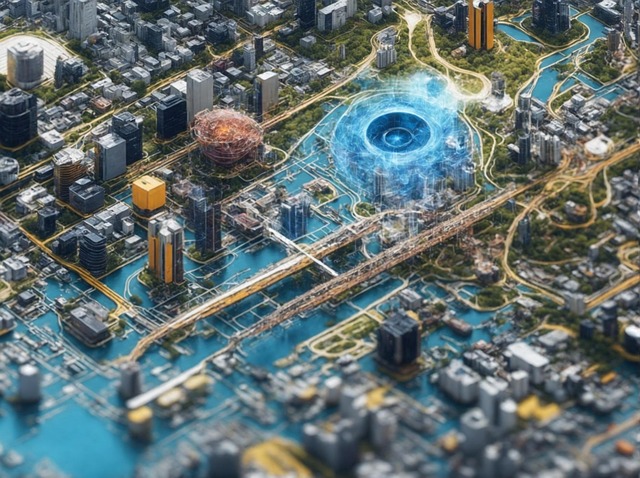AI is revolutionizing commercial real estate (CRE) analysis with advanced property assessment tools, including computer vision and machine learning. These technologies process satellite imagery, blueprints, sales records, and market trends to create detailed AI investment risk scoring engines. By identifying structural issues, tenant patterns, and potential risks, these engines enable investors to streamline due diligence, make informed decisions, mitigate risks, and optimize returns, all while staying ahead of market changes.
“Unleash the potential of commercial real estate (CRE) analysis with the transformative power of Artificial Intelligence (AI). This article explores how AI, coupled with computer vision, is revolutionizing property assessment. We delve into the capabilities of AI in enhancing visibility and understanding of CRE assets.
From ‘The Power of Computer Vision’ to ‘Building Investment Risk Scoring Engines’, discover how AI techniques are leveraged to create intelligent systems that accurately evaluate investment risks. These advanced algorithms offer a new era of efficient, data-driven decision-making for investors.”
- Understanding AI's Role in Commercial Real Estate Analysis
- The Power of Computer Vision: Enhancing Property Assessment
- Building Investment Risk Scoring Engines with AI
Understanding AI's Role in Commercial Real Estate Analysis

Artificial Intelligence (AI) is transforming commercial real estate analysis by offering advanced property assessment capabilities, enabling more efficient and accurate decision-making. AI investment risk scoring engines utilize computer vision, machine learning, and deep analytics to process vast amounts of data, including satellite imagery, building blueprints, historical sales records, and market trends. This comprehensive approach allows for a deeper understanding of property characteristics, neighborhood dynamics, and potential risks, providing investors with valuable insights that were previously difficult to attain.
By leveraging AI, commercial real estate professionals can streamline their due diligence processes, identify lucrative opportunities, and mitigate investment risks. AI algorithms can detect subtle features in building structures, such as structural anomalies or maintenance needs, which may impact property values. Additionally, these engines can analyze market data to predict future trends, helping investors make informed decisions based on current and projected returns.
The Power of Computer Vision: Enhancing Property Assessment

The integration of computer vision in commercial real estate (CRE) analysis has revolutionized property assessment, offering a powerful tool for investors and professionals in the sector. This technology leverages artificial intelligence (AI) to interpret and understand visual data from satellite imagery and aerial photography, providing insights that were previously inaccessible or time-consuming to acquire. By processing vast amounts of visual information, computer vision algorithms can identify patterns, detect changes over time, and analyze various features of a property and its surroundings.
This advanced capability has significant implications for AI investment risk scoring engines. Computer vision can accurately assess the age and condition of buildings, evaluate the quality of infrastructure, and even predict potential environmental issues or neighborhood developments. With these insights, investors can make more informed decisions, mitigating risks and optimizing returns. The technology streamlines the property analysis process, enabling faster evaluations and providing a competitive edge in a dynamic market.
Building Investment Risk Scoring Engines with AI

The integration of AI in commercial real estate (CRE) has sparked a revolution, and one of its most promising applications is in building investment risk scoring engines. These AI systems leverage computer vision techniques, combining historical data with visual analysis to evaluate property assets. By processing vast amounts of images and data, they can identify patterns and trends that might not be immediately apparent to human analysts. This includes assessing structural integrity through visual inspection, analyzing tenant activity, and detecting signs of potential maintenance issues or property degradation.
AI investment risk scoring engines offer a sophisticated approach to CRE decision-making. They can quickly generate comprehensive risk profiles for buildings, helping investors make informed choices. These engines continuously learn and adapt, ensuring that risk assessments stay up-to-date with market changes and property trends. This technology streamlines the investment process, allowing professionals to focus on strategic decisions while relying on AI to provide valuable insights into potential risks and opportunities.
AI is transforming commercial real estate analysis, empowering professionals with advanced tools like computer vision and sophisticated AI investment risk scoring engines. By leveraging these technologies, stakeholders can make more informed decisions, optimize property portfolios, and navigate the market with enhanced accuracy. The future of CRE involves embracing these innovations to stay competitive and capitalize on new opportunities.
